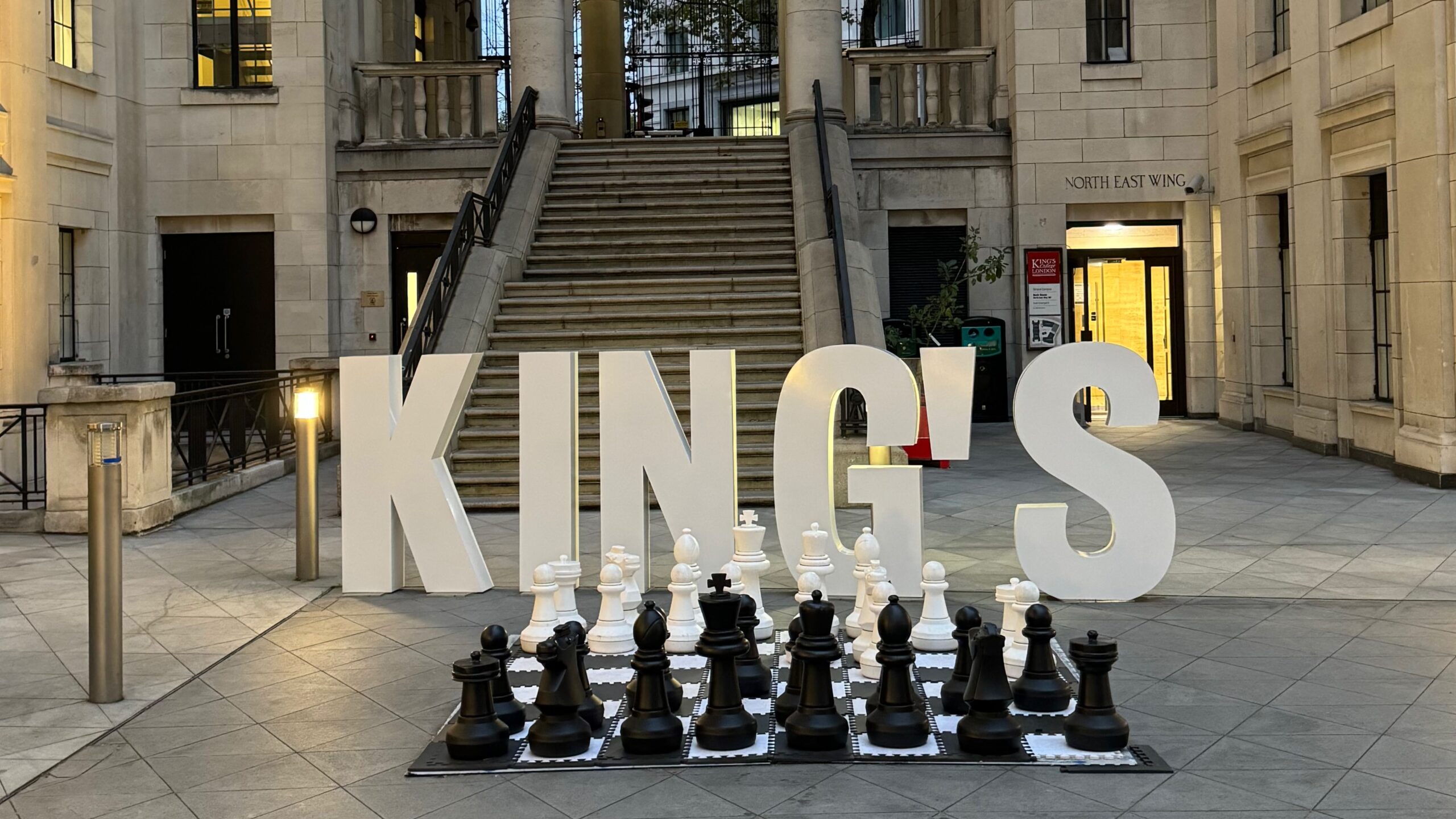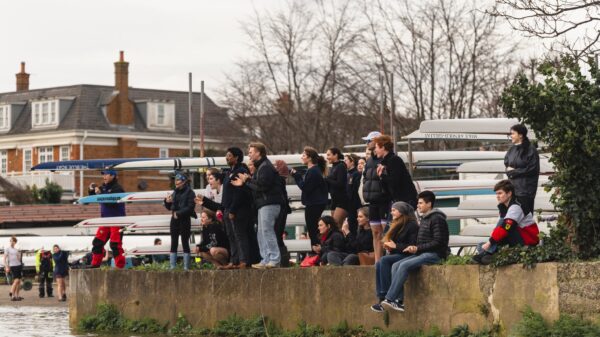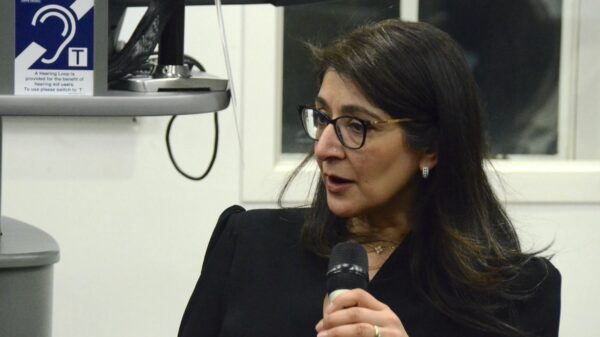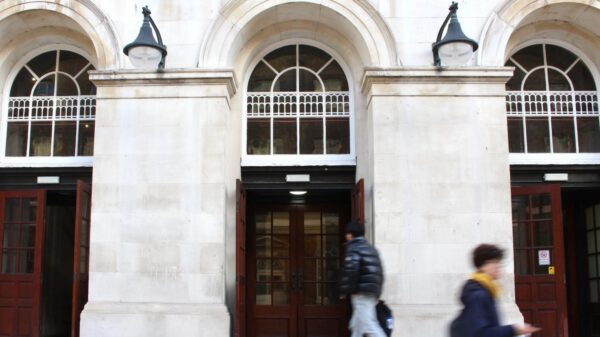Comment Editor Rayhan Hussain examines the state of student politics, critiquing a culture of cancellation and ideological conformity that threatens free speech, open debate, and academic integrity on university campuses.
This article was first published in print on 29 November 2024.
Student politics today seems more interested in silencing dissent than addressing real student concerns. If you challenge the status-quo on campus, prepare to be labelled an enemy, a bigot, or worse — silenced.
The result? A stifling atmosphere where only ‘acceptable’ opinions can be voiced, and anyone who dares to step outside the lines is cancelled or de-platformed. Welcome to the world of modern student politics, where free speech has become an endangered concept, sacrificed on the altar of ideological conformity.
Hypocrisy in Woke Culture
In today’s woke culture, it’s become trendy to preach kindness, inclusivity, and tolerance – until you meet a conservative. From those who will proudly declare on dating apps that they would ‘never date a Tory,’ to endless finger-pointing and blaming the other side, the hypocrisy is glaring.
‘Lefty loonies‘, as labelled in American politics, will blame every inconvenience in their lives on the government of the day. We saw that brazenly during the dying days of the Conservative government, and the same can be said for Labour’s bleak start in power. People expect far too much from the state, in which governments will inevitably fall short.
Ironically, it’s these same ‘woke’ students who shout the loudest about compassion – yet are often the first to engage in cancel culture when faced with someone who disagrees with their worldview. Ostracising someone purely based on their political identity and subsequently setting out to call for more kindness in our discourse is unacceptable.
Living in this era of cancel culture presents the reality that it doesn’t just come from one side, of course. Whilst the hypocrisy of the so-called ‘woke’ left is particularly absurd, it would be remiss however to ignore the extremes on the right of student politics, who are equally guilty of hateful rhetoric.
One could argue that its kindness for most, except Tories, then.
The Suspension of the KCL Conservative Association and The Marginalisation of Moderate Voices
The suspension of the KCL Conservative Association (KCLCA) earlier this year, over accusations of hate speech, should have been a seminal moment in our student community.
Port-drinking social events displaying a fascist armband, motions to ‘invade Yemen’ and ‘Sink the Boats’ – as well as a debate featuring heavily racist and sexist language – formed a carousel of events which led to the inevitable suspension of the KCLCA.
These events were egregious, shameful, and rightly called out with powerful condemnation from all sides. Additionally, those specific guilty individuals were justly discontinued from participating in further debates and events within the KCLCA. Despite this, it is now undeniably the case that the suspension has gone on for far too long.
The invidious position the KCLCA now finds itself in is a prime example of how student politics succeeds in marginalising centrist or moderate voices. Such a protracted suspension has left many watching with horror in how, over the long term, political discourse has ostensibly devolved into silencing rather than debating.
For students who espouse everyday conservative values and principles, it is frustrating to see them without any representation within the KCLSU. Mainstream conservative views being lumped in with extreme rhetoric is unfair, moderate voices are eventually left dangling as a punished entity – with their forum for discussion removed – and all based off the actions of an extreme minority.
With fresh leadership the KCLCA should be given the opportunity to re-establish themselves. This prolonged cancellation only seeks to stifle productive debate and replace it with a toxic assumption that all conservative voices within the student community are somehow hateful. But how on earth can we learn to debate legitimate ideas if the doors are slammed shut before the conversations have even begun?
A Sign of The Times?
The former Home Secretary Suella Braverman’s recent experience at Cambridge University is a striking example of how these silencing tactics have become commonplace in our prestigious academic institutions. Braverman, like so many others, was met not with debate, but with cancellations.
This is part of a wider and worrying trend where controversial figures, particularly those on the right, are being de-platformed as opposed to engaged with. Love or loathe Braverman (and there are certainly people in both of these camps), silencing voices you disagree with only weakens the quality of debate on campus.
“When an elected member of our Parliament is not allowed to speak, something must be wrong. When it happens on the campus of one of our world-class universities, then we have a crisis.”
Suella Braverman writing in The Daily Telegraph on 15 October, 2024.
If you can’t even hear out a former holder of one of the Great Offices of State, then what hope is there for an open exchange of ideas? From the gender critical professor Kathleen Stock to many other political figures, this culture of cancellation threatens the inherent purpose of higher education in our country.
Why We Need More Straight Talkers
In this era of the 24-hour news cycle, where every word is scrutinised and latched onto by the media commentariat as well as the wider public, it is difficult to hone one’s message. It’s why we need more politicians like Kemi Badenoch, the newly-elected Conservative leader, who brings a much-needed air of authenticity to the table.
Her no-nonsense approach to politics offers a refreshing contrast to the ideological conformity which we sadly see in student politics today. She is not only fearless in expressing her worldview, but Badenoch’s willingness to speak frankly and challenge ‘woke’ orthodoxies truly resonates with students tired of feeling as though they can’t express their views.
Meanwhile, adding to his numerous flaws, Sir Keir Starmer is culpable of the same very silencing tactics within his own party. The suspension of the whip from seven Labour MPs on the left of the party, as a result of them voting against the government to scrap the two-child benefit cap, is representative of petty political games as opposed to the serious leadership and command our country requires.
Thus, what we need are more leaders – on both sides – who are signed up to engaging in grown-up debates, rather than pandering towards the safest option. Ultimately, there is a major difference between opening up constructive debate and opposing for the sake of opposing.
Politics Biases in Academia: Grading Based on Ideology?
Recently at the Conservative Party Conference, Kemi Badenoch spoke out in support of students who felt their essay grades were being marked down by lecturers because of their political beliefs. She spoke about the concerning reality of students being afraid to share their politics with their peers, over anxieties of being attacked.
This isn’t simple hearsay, for some it’s their reality. And students with less progressive views are not ‘dumb.’ I’ve spoken to peers, particularly those taking political ideology and Middle Eastern modules, who have felt forced to approach their assignments in a mainstream and orthodox manner over fear of not attaining the high marks they are rightly entitled to. This includes, but is not limited to, avoiding ideas that go against the grain or challenge a dominant belief within a certain discipline.
Universities are – or at least should be – a paragon of diversity of thought. If academic merit is overshadowed by ideological bias, we’re losing the very point of education.
Time to Collectively Get Our Act Together
At the end of the day, student politics should consist of healthy debate, dialogue, and learning – not cancelling, de-platforming, or grading students based on ideological conformity. It’s time to tell the truth.
This cannot continue. We risk engendering a generation that values conformity over critical thinking. It’s time to re-establish the principles of free speech and intellectual dialogue in our universities – before the next generation fall into the trap of losing their voices altogether.















